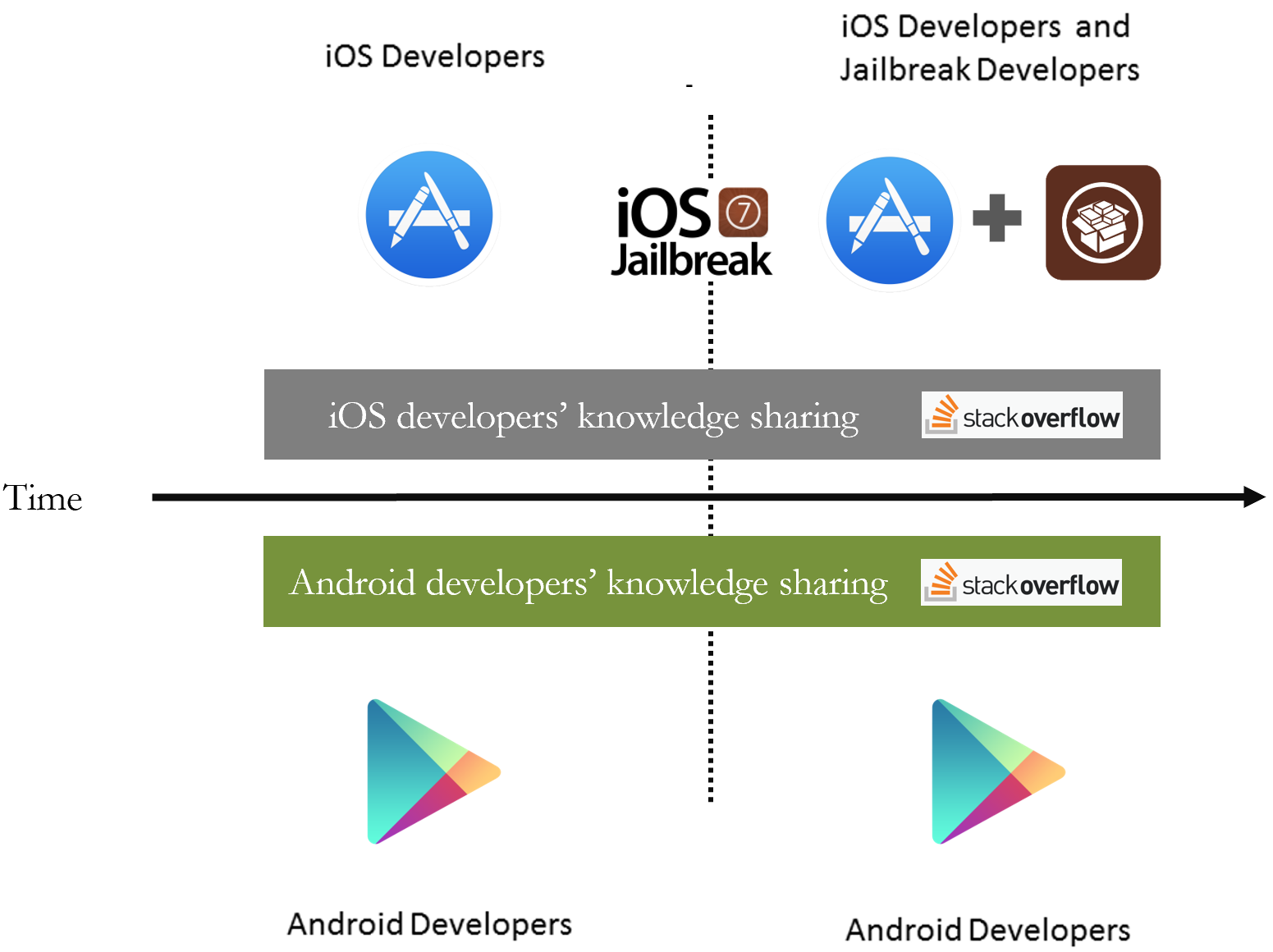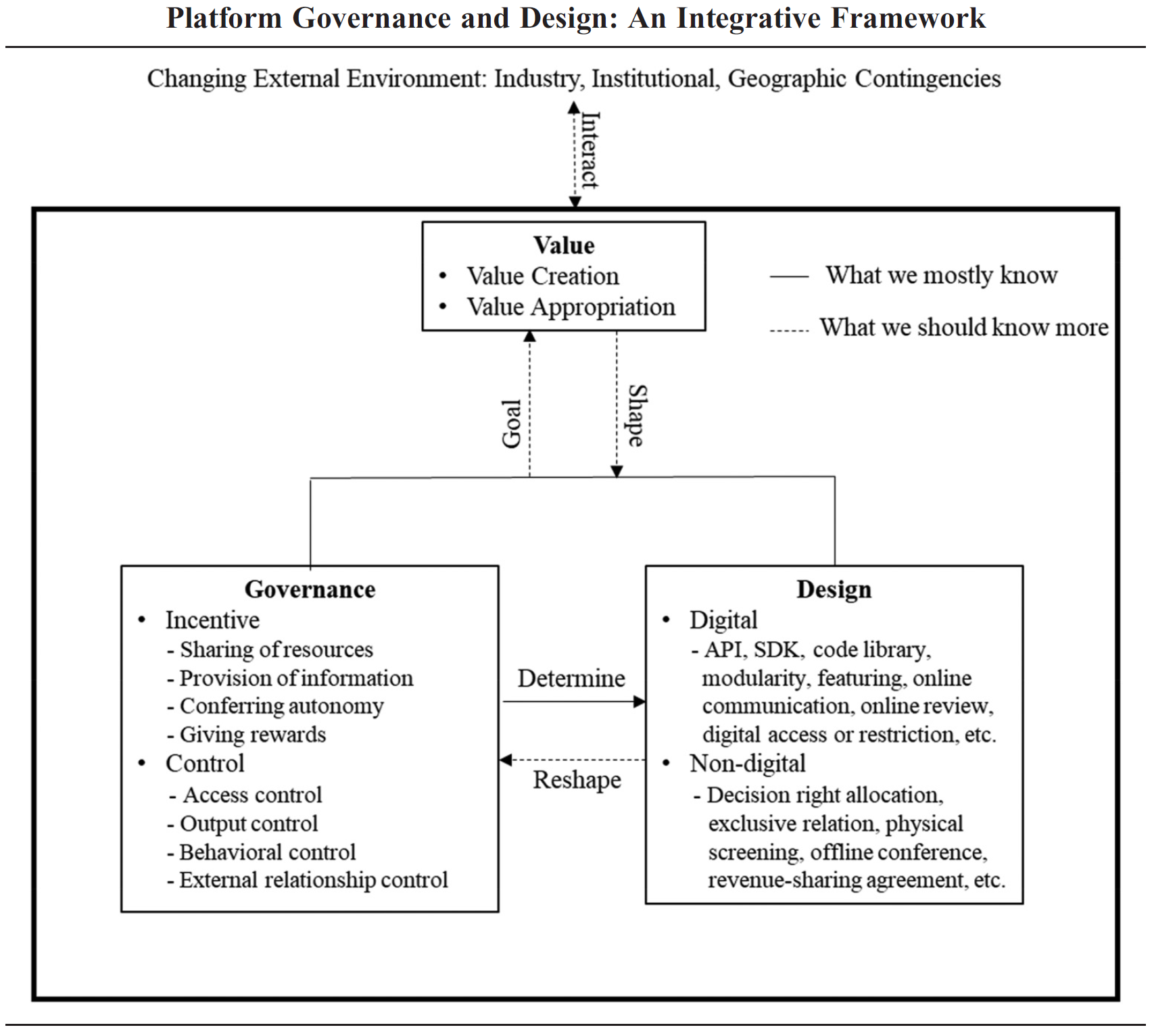Strong platform control can encourage rather than depress complementors’ innovation activity
This blog is written by Yuchen Zhang, Jingjing Li, and Tony Tong
Digital platforms are drawing increasing attention from innovators and entrepreneurs, whether it is about creating a new platform, or providing product offerings and exchanging new ideas on an existing platform. Apple’s App Store, which hosts millions of mobile apps published by developers and used by billions of users, is a great example of a platform that harnesses the power of distributed innovation agency. Indeed, platforms like the App Store are now being seen as a “semi-regulated” marketplace or unique organization that foster innovation and entrepreneurship under the leadership of the platform owner (Apple). Yet, such leadership is surely easier said than done. After all, platform owners (Apple) do not own the product offerings (apps), nor do they have direct control over their business partners—complementors (app developers).

So what can a platform owner do then to coordinate and orchestrate the value creation activities of autonomous complementors (often in thousands or millions) that are critical to the vibrancy and success of a platform?
This question was the focus of a research paper we recently published in Strategic Management Journal. We invoke the idea of “platform governance”, or the “set of rules and policies that platform owners adopt in order to coordinate and deploy co-specialized assets and capabilities of complementors.” While platform governance manifests itself in different mechanisms, in this paper, we argue and show that platform owners can practice what we call “access control” to shape complementors’ innovative activities. Rather than looking at complementors’ economic exchange activities on a platform (e.g., listing and selling of mobile apps), we examine their exchange of knowledge (about developing apps) with each other. The “free” sharing of problem-solving techniques, code writing tips, and product development experiences, is critical to software development and has even been considered by some as underpinning the recent open source revolution.
We look at how the lack of access control in the form of “jailbreaking” shapes app developers’ knowledge sharing activities. Specifically, Apple’s iOS platform is well-known for adopting a strict gatekeeping policy that controls for what (apps) or who (app develops) have access to the platform; this policy denies platform access to imitating apps and developers in order to encourage app innovation. The jailbreak of the iOS—which was more common in the early years of iOS development—is a hacking that exploits loopholes to remove Apple’s built-in restrictions, allowing users to install apps not officially approved by Apple’s App Store. Jailbreaking would therefore introduce pirated apps that imitate or directly copy the features and functionalities of the existing apps approved by the App Store and trigger so-called business stealing and user attrition, putting a competitive pressure on those iOS developers who develop “legit” apps and seek to profit from app sales.
As illustrated in the figure below, we leverage the unexpected timing of the jailbreak of iOS 7 in 2013 as a natural experiment, to compare the Q&A activities of iOS app developers (treated group) and otherwise comparable Android app developers unaffected by the jailbreak (control group), on StackOverflow.com, an active online forum of software developers. The jailbreak significantly weakens (for a short period) Apple’s strict access control, such that imitating app developers (and apps) can now gain access to the App Store and users of iOS devices. We find that the jailbreak reduces the amount and quality of the knowledge shared by iOS app developers—their posting of Q&As decreases by 7%, and the quality of their posts by 15%. Such effects can be seen as causal given the research design.

The lapse in access control therefore dampens developers’ incentives to share knowledge (and innovate). In other words, strong access control, at least in the case of Apple’s iOS, will appear beneficial to the platform ecosystem and platform owner, because it enables more vibrant knowledge sharing among app developers, which should enhance their innovation and product development effort.
In practice, a platform owner can resort to other tools or design features to implement access control. These include charging a membership fee or implementing an involved process to weed out low-quality complementors (e.g., eHarmony charging registered users a non-trivial fee), designing certain screening processes to determine which complementors will be allowed platform access (e.g., Uber requiring drivers and their cars to pass certain criteria), and selectively restricting or opening up the use of boundary resources (e.g., APIs, SDKs, code libraries) to particular complementors. However, it’s important to note that none of these is meant to imply that stronger control is always “better.” In fact, the degree to which platform owners should grant access to complementors will depend on many factors, including the specific business model or ways in which platform owners profit from innovation. For instance, Apple makes a lot of profits from the commissions charged on app sales through its App Store, making it important that it implement strong access control to encourage the creation of high-quality apps. By contrast, for Google’s Android, most profits are coming from advertisement and related services; lesser access control does not affect it as much.
What other governance mechanisms, in addition to access control, may be at the platform owner’s disposal to coordinate and orchestrate complementors’ value creating activities? In a review article published in the Journal of Management, coauthored with Liang Chen, Shaoqin Tang, and Nianchen Han, we examine this question by reviewing existing knowledge on digital platforms written by scholars in management, MIS, marketing, operations, economics, and other related fields. This is done based on our view that although the leadership role of platform owners is well recognized, a coherent approach to understanding how they govern their relationship with complementors to create and appropriate value is still lacking. We use two core dimensions of organizational governance—incentive and control—to synthesize platform governance research into eight mechanisms, and we map them to a multitude of seemly idiosyncratic platform design tools and features, summarized in the figure below.

To conclude, platform governance matters a great deal. Our study shows that one specific form of platform governance, access control, matters to complementors’ innovation activity by encouraging cooperative behaviors in knowledge sharing. Before we herald openness as the holy grail of innovation, it is time to also celebrate the important role of platform control in motivating complementary innovation.
This blog is based on Yuchen, Jingjing, and Tony’s research published in the Strategic Management Journal, which is included in the Platform Papers references dashboard:
Zhang, Y., Li, J., & Tong, T. W. (2022). Platform governance matters: How platform gatekeeping affects knowledge sharing among complementors. Strategic Management Journal, 43(3), 599-626.